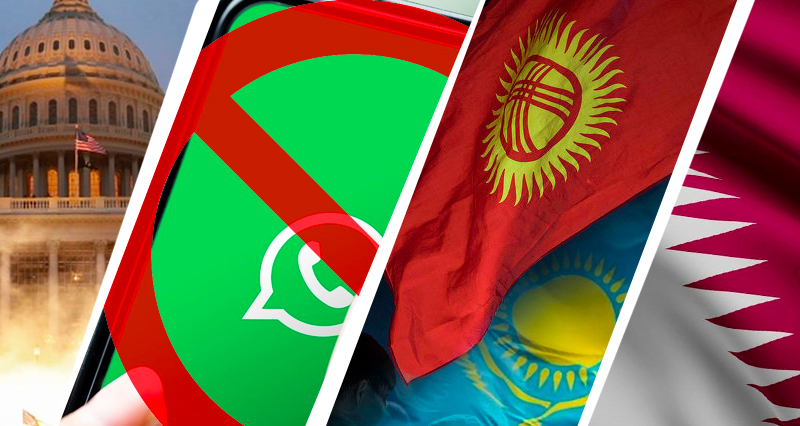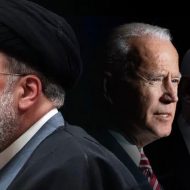The Capitol Occupation and its Aftermath
On January 6, 2021, a crowd of supporters of US President Donald Trump occupied the US Capitol building for several hours. During those hours, the approval of the electoral vote was taking place. This procedure was aimed to certify Joe Biden as the new president of the United States.
Incumbent Republican President Donald Trump is challenging the election results, accusing Biden and the Democratic Party of manipulating the mail-in ballot. It was through mail-in ballots that Joe Biden beat Trump in the November 3, 2020 election.
On January 6, Trump called a rally that was attended by up to several hundred thousand people. After Trump’s speech, part of the crowd attacked the US Capitol building and was able to occupy the building for the first time in US history. However, Trump did not take advantage of the situation and demanded that his supporters vacate the building. During the storming of the US Capitol, a police officer shot and killed a Trump supporter, US Air Force veteran Ashli Babbitt.
Following the occupation of the US Capitol, a wave of criticism fell on Trump. Democrats accused him of inciting crowds to commit illegal acts. The liberal media and politicians compared what happened to 9/11 and the Japanese attack on Pearl Harbor. Joe Biden called the Capitol bombers domestic terrorists. The FBI is looking for participants in the invasion.
The Capitol seizure was an act of desperation by angry Americans who believe the election was stolen from them. Significantly, 45% of Republican Party supporters, according to a recent YouGov poll, supported the protesters’ actions.
Nevertheless, opponents of Donald Trump used the events as an excuse to launch a crackdown on the outgoing president and his supporters. The speaker of the House of Representatives Nancy Pelosi demanded that US Vice President Mike Pence suspend Trump under Article 25 of the US Constitution. Otherwise, she plans to begin impeachment proceedings against Trump. As Pelosi herself admitted, the goal now is not to force Trump to resign (he will resign on January 20 anyway), but to prevent him from running for president again.
The seizure of the Capitol demonstrates the split in American society, it will be used to pressure and repress Trump supporters, which will only strengthen this split. As Mehmet Perinçek has written for the UWI, the assault on the US Congress is the sign of the decline of American hegemony.
Richard N. Haass, President of the leading globalist think-tank “Council on Foreign Relations” expressed the same filings. “If the post-American era has a start date, it is almost certainly today,” he wrote on Twitter.
Digital totalitarianism is coming
An important consequence of the January 6 events in Washington, D.C., is the rise of digital totalitarianism. The owners of the largest American social networks, affiliated with the Democratic Party and Deep State began a suppression of Donald Trump and his supporters.
The largest social networks (Twitter, Facebook, Instagram and YouTube) restricted access either to the accounts of the incumbent President of the United States or to individual posts. Similar measures were taken against the most ardent Trump supporters. In particular, former national security adviser Michael Flynn and former Trump campaign lawyer Sidney Powell had their Twitter accounts deactivated.
Google blocked in its Google Play store the social network Parler, which is used by supporters of incumbent US President Donald Trump. Apple has taken similar action. On December 11, Amazon suspended server hosting for the conservative-oriented site.
In the run-up to the US presidential election, American social networks tightened their policies. Mass purges were conducted of unwanted accounts accused of “inauthentic behavior”. Later, Twitter and Facebook marked as false all messages of Donald Trump, where he questioned the outcome of the election.
At the same time, in the United States, the repression of Trump supporters has reached such a scale where they are already being refused airline tickets. A Delta Air Lines plane flying from Washington, D.C. to Minnesota made an emergency landing at a nearby airport due to passengers expressing support for US President Donald Trump,
Although in the US itself the tightening of the digital dictatorship has coincided with an intensification of domestic political struggles, Big Tech’s actions are not a reaction to the actions of Donald Trump and his supporters.
Trends toward global censorship on social networks were evident throughout 2020. At the beginning of 2021, WhatsApp announced changes to the terms of its user agreement. The new terms officially questioned the privacy of the messenger, requiring users to share users’ personal information transmitted via WhatsApp.
In response, Turkish President Recep Tayyip Erdoğan and other Turkish officials said they were refusing to use WhatsApp and were switching to other platforms, primarily the BiP application, owned by national company Turkcell Iletisim Hizmetleri AS.
On December 11, the Turkish Competition Board launched an investigation into WhatsApp and Facebook because of their new privacy policies. Along with this, the Turkish regulator suspended WhatsApp’s new user agreement.
Qatar and the Gulf: The American Plan
On January 5 Participants at the 41st Gulf Cooperation Council (GCC) summit of Bahrain, UAE, Kuwait, Oman, Qatar, Saudi Arabia signed an agreement Tuesday, to end the diplomatic crisis surrounding Qatar.
In 2017, Saudi Arabia, the UAE, Bahrain, and Egypt accused Qatar of supporting terrorists and getting too close to Iran. As a result, these four countries severed diplomatic and economic ties with Qatar and closed their borders.
The event was attended by Jared Kushner, a senior adviser to US President Donald Trump and his son-in-law. Kushner is considered the main initiator of Qatar’s reconciliation with its opponents.
The resumption of diplomatic relations with Qatar could be the last step in creating an anti-Iranian alliance in the region involving Israel and the Arab states. Turkey could also be put in a vulnerable position. However, the US may try to include Turkey in this alliance as well.
According to Onur Sinan Güzaltan, the only alternative to the Atlanticists plans might be Ankara’s strategy to establish its own direct relations with Cairo and strengthen its diplomatic engagement with Riyadh “to bring Tehran and Riyadh together under the mediation of Turkey in order to create a regional dialogue against the US-Israeli plans”.
Elections in Kyrgyzstan and Kazakhstan
On January 10, elections were held in the two Turkic countries of Central Asia. After most of the votes have been counted, Sadyr Zhaparov leads with 79.12% of the votes. Sadyr Japarov came to power in October 2020 against the backdrop of protests against the results of the parliamentary elections and the subsequent unrest which led to the resignation of the then president Sooronbai Jeenbekov. On November 14, 2020, Zhaparov resigned as acting head of state to run in the presidential election and suspended his duties as prime minister.
As Zhaparov is considered to be connected with criminal circles (like most active politicians in Kyrgyzstan), the balance of interests of criminal and corrupt clans will continue to determine policy in this country. The state in Kyrgyzstan is weak. All this creates favorable conditions for the growth of terrorist threat in Kyrgyzstan. Terrorists can be used by the Atlantists to undermine the positions of Russia and Kyrgyzstan’s neighbor China.
On January 10, parliamentary elections were held in Kazakhstan. The party of power Nur Otan won them by a wide margin, gaining more than 70% of the vote. Kazakhstan remains a stable country. The election demonstrates a high level of public confidence in the ruling elites.









Leave a Reply